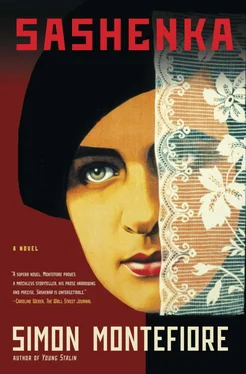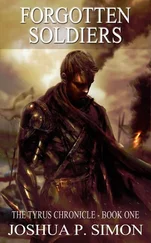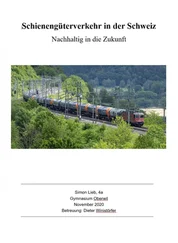“Do you still write?”
“They’d beaten all that out of me.” He brushed that aside with a gesture. “I am happy just to breathe. Do you have any food in this palace? I’m always hungry.”
“Of course,” said Pasha. “We can make anything you like. Just name it!”
“I’ll have a steak, dear prince, and all the trimmings, and a bottle of red wine,” said Benya. “Do you have any French wine? Or is that pushing this dream too far? I once loved French Bordeaux…I drank it in Paris, you know—do you have it? Well then, will you all join me?” He went quiet again, and Katinka could see that his eyes had filled with tears.
Finally he took her hand and kissed it a second time. “Meeting you is like a last summer for me. Not a day passes when I don’t remember your grandmother. We were the world’s greatest lovers, yet we were together for just eleven days.” He sighed deeply. “I gave her a flower for every day…”
Katinka’s heart gave a little skip. She reached into her backpack and pulled out the little envelope of materials from Sashenka’s file that Kuzma had given her. “Does this mean anything to you?” She handed him a much-creased old envelope addressed to “B. Golden” at the Soviet Writers’ Union, in a feminine hand.
He took it from her, opened it, fingers shaking, and pulled out a pressed mimosa so flimsy that it almost came apart in his hands.
“She sent it to you,” Katinka told him, “but it arrived too late, and you’d been arrested. The Writers’ Union gave it to the NKVD and they filed it.”
Benya muttered something, shaking his head in disbelief. Then he raised the flower to his face, sniffed its old petals, kissed it and when he could finally speak, he sat up straight and proud, beaming at her through flooded eyes.
Suddenly he threw off his peaked cap and, with a dashing and triumphant smile, spun it across the room. “Even after fifty years,” he said, “I know what this means.”
It was a lazy sommerki in Moscow over a week later. A sleepy, orange-headed sun had lost the swagger of the day and struggled to remain in the sky. The light spread a tender pink veil over the cool waters while the shadows beneath the trees were dyed a dark blue. There was so much blossom on the warm breeze, it almost snowed gossamer as Katinka walked with Maxy around the Patriarchy Ponds. Katinka felt dizzy and joyful to be away from her family and the past. Here only the present mattered as she strolled around this sanctuary in the middle of the clamoring city.
She had not seen Maxy since that day out in the woods and she had things to tell him that only he would understand and that only they could share. Though they weren’t touching, she felt that they moved in sync, as if their limbs were linked with invisible threads.
“I’m so glad I’m living now,” she was saying to him, “because I don’t think I would have been as brave as Sashenka and Vanya if I’d lived then.”
“I think you might have been braver,” answered Maxy as, like one, they headed toward the outdoor café beside the water.
“Well, thank God that in our times we don’t need to be that brave,” she said. “We’re free in Russia. For the first time in history. We can do what we want, say whatever we want. No one’s watching us anymore—that’s all over now.”
“But for how long?” asked Maxy so seriously that Katinka thought he was being absurdly gloomy. The joy of being alive and young suddenly took hold of her—and she spun around and kissed him, quite recklessly.
This is the story of the women and children of a fictional family across several generations and I hope it will be enjoyed as that: an intimate novel about a family. But it was inspired by the many stories, letters and cases that I found in archives and heard in interviews over ten years of researching Russian history. My own ancestors escaped from the Tsarist Empire in the early years of the last century and sparked my lifelong interest in Russia.
There are some historical characters in the book—Rasputin and Stalin being among the most obvious—and their portrayals are as accurate as I could make them. But as I wrote this book, Sashenka and her family began to seem more real than their factual contemporaries.
Historians generally write about extraordinary people who’ve shaped world events. But in this novel I wanted to write about how an ordinary family coped with the triumphs and tragedies of twentieth-century Russian history. I was fascinated by the courage and endurance of the many thousands of women who lost their husbands and children and I wondered: how did they survive? And how would any of us have behaved in such terrible times?
Above all, this is a book about love and family—but I also wanted to make these strange and tragic times in Russian history interesting for readers who perhaps wouldn’t read history books. The details of high society in St. Petersburg, its shops, restaurants and clubs, prisons and dives, its tycoons and secret policemen, the Smolny school and the Okhrana offices, and many of its outrageous characters such as Prince Andronnikov are mainly factual. In the Soviet period, Stalin, Beria, Rodos and Kobylov are historical, as are the details of the prisons, their guards, and the customs of the labyrinthine Soviet bureacracy. The language and details of the documents in part three are real too, although some of the archives have been invented. The village of Beznadezhnaya is imaginary, though typical of many places I’ve known in the north Caucasus.
The story of Sashenka and her family is inspired by many true stories, including those of the Jewish wives of Stalin’s henchmen, the arrests of writers such as Isaac Babel, and the case of Zhenya, the wife of Nikolai Yezhov, the NKVD boss who destroyed all those who loved her. (This also appears in my history Stalin: The Court of the Red Tsar. )
I owe a huge debt to my sources, whose work I have used liberally: for part one (St. Petersburg, 1916), I used Vladimir Nabokov’s famous and exquisite memoir, Speak Memory ; a brilliant privately published memoir of a wealthy Jewish family, The Silver Samovar by Alexander Poliakoff, whom I knew as a boy; The Five by Vladimir Jabotinsky; Ilya Ehrenburg’s multivolumed memoirs; as well as novels such as The Moskat Family and The Manor by Isaac Bashevis Singer.
On the history, politics, art and society, I used a superb book, Passage Through Armageddon by W. Bruce Lincoln. On the details of the Tsarist secret police, see Russian Hide-and-Seek: The Tsarist Secret Police in St. Petersburg, 1906–14 by Iain Lauchlan and The Foe Within by William C. Fuller, Jr. But I found most of this material during the research for my latest history book, Young Stalin.
On the Stalin period in part two, most of the material comes from my own research into the Soviet élite for my history, Stalin: The Court of the Red Tsar, but I owe much to brilliant material in The KGB’s Literary Archive by Vitaly Shentalinsky. I also used the novella The House on the Embankment by Yury Trifonov and the novels in the Arbat trilogy by Anatoli Rybakov.
Recent history books such as Stalinism as a Way of Life by Lewis Siegelbaum and Andrei Sokolov, Thank You Comrade Stalin by Jeffrey Brooks and Rulers and Victims by Geoffrey Hosking were invaluable sources. The outstanding and unforgettable book The Whisperers by Orlando Figes is especially enlightening because it reveals how Sashenka’s story was, in many ways, commonplace. I recommend it to anyone who is intrigued by my story and wants to know what really happened to private lives and families in Russia. Even in the 1990s—even now—Russian families are discovering their extraordinary pasts and being reunited with vanished relations.
Читать дальше












